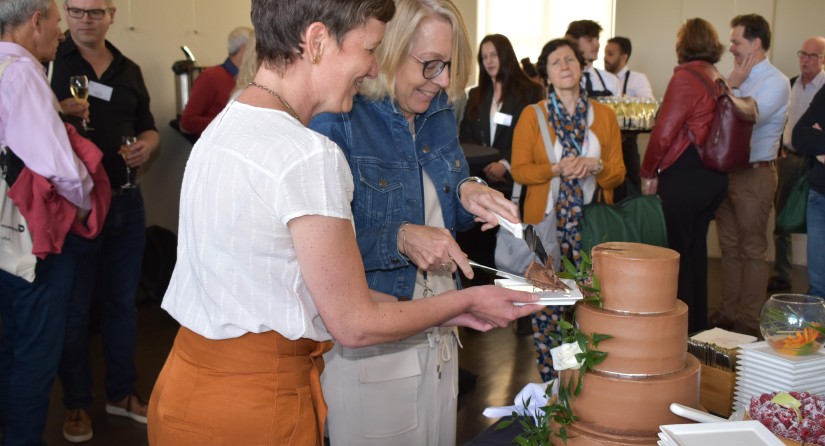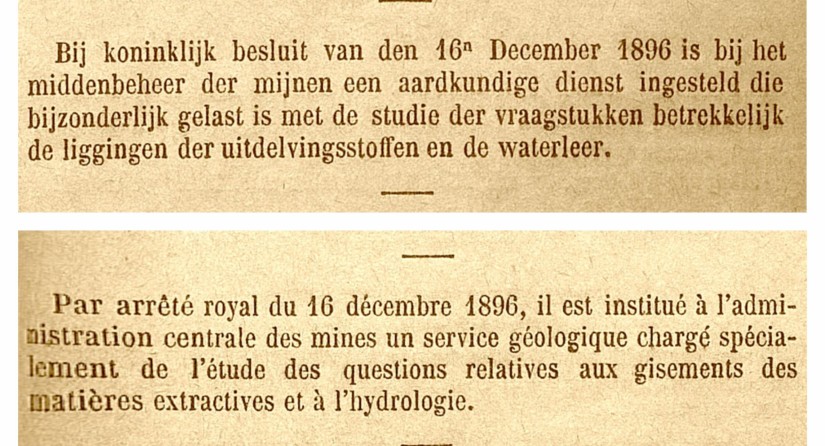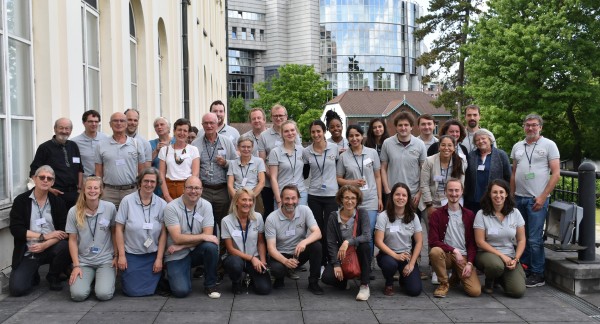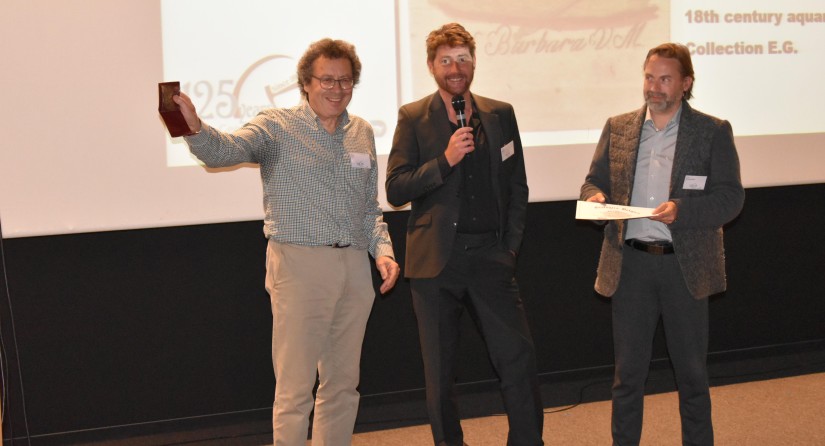The Geological Survey of Belgium celebrates its 125th birthday

On December 16th 2021, our Geological Survey of Belgium was exactly 125 years old. This important milestone was celebrated (with a little delay, due to covid, but nonetheless with much enthusiasm) with a colloquium, a book, an award, a birthday cake and excursions. It was the occasion to look back on years of service and to reflect on the future role that geology may play in science, economy and society.
On December 16th, 1896, a royal decree, as short as a Tweet, was at the source of the Geological Survey of Belgium. The reason for its creation was very clear: geologists were to find mineral and coal layers to feed the Belgian industry that was booming at the time. In the 19th century, Belgium was one of the leading countries in industry and, to maintain this advantage, the geological riches had to be exploited intensively. Collecting data, mapping the territory, and understanding the Belgian underground was of the highest importance for our young nation. Our country was the first to have a geological map of her entire territory, at a scale of 1/40.000.

The world has changed a lot since the last century – the last coal mines in Belgium were closed 30 years ago – and the mission of our geologists has evolved: today, it’s a matter of providing society with the necessary knowledge so it can manage natural resources in a sustainable way, slow down climate change and be more resilient in the face of natural disasters. In a word: contribute to a sustainable, renewable and safe society.
Impressive collections
Our geologists make boreholes to test out where geothermal energy can be used, even in a metropole such as Brussels. They study the way to capture CO2 and store it underground and research where and how nuclear waste can be reposited. Geology is by definition the study of the deep past : this is the way to reconstruct climate changes and natural disasters, such as tsunamis, of days long bygone. In order to collect data in an even more efficient way, members of the Geological Survey of Belgium have developed new robots and sensors to explore where humans can’t go.

In 125 years of existence, and especially since the 50ies, geologists have little by little put explored the deeper subsurface. 40 km of drill cores and more than one million stones and minerals, along with the exceptional documents that go along with them, are conserved with care in our collections. They can be called the spine of our Geological Survey.
The birthday book
In a common effort, a 300 pages long book has been written on the way that the GSB became THE knowledge center for Belgian geoscience, with all the important milestones and characters of its history – from the first director Michel Mourlon (as of 1896), to the resistance heroin and librarian Marguerite Banckaert (until 1936), and the geologist of the quaternary, Roland Paepe (until 1999).
During the birthday colloquium, attention was also drawn to the Merits of today’s geologists. The association of geologists Geologica Belgica crowned Michiel Dusar (GSB, RBINS) with the Van den Broeck award. Dusar has been active for 50 years in regional geological research in Belgium. His main areas of expertise were the exploration of geo-energy, the karst phenomena and the stratigraphy from the Devonian up to the Cretaceous, natural building stones, geodiversity and geo-parcs.
THE cornerstone of the GSB has always been the dedication of its workers. Today, the Survey counts 27 members from 7 different countries. For the first time since 1896, there are more women than men in the Survey. The expertise, thirst for innovation and enthusiasm of today’s team makes a solid base for the next decennia or, who knows, the next 125 years.






